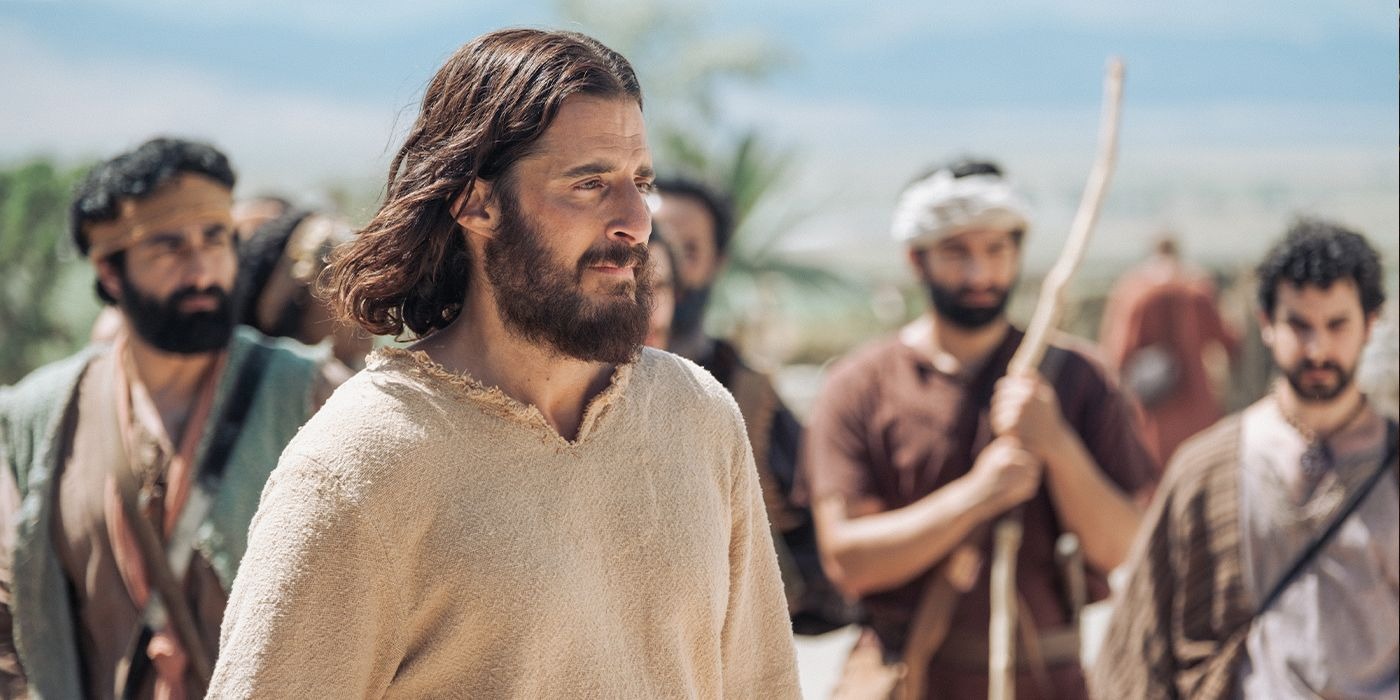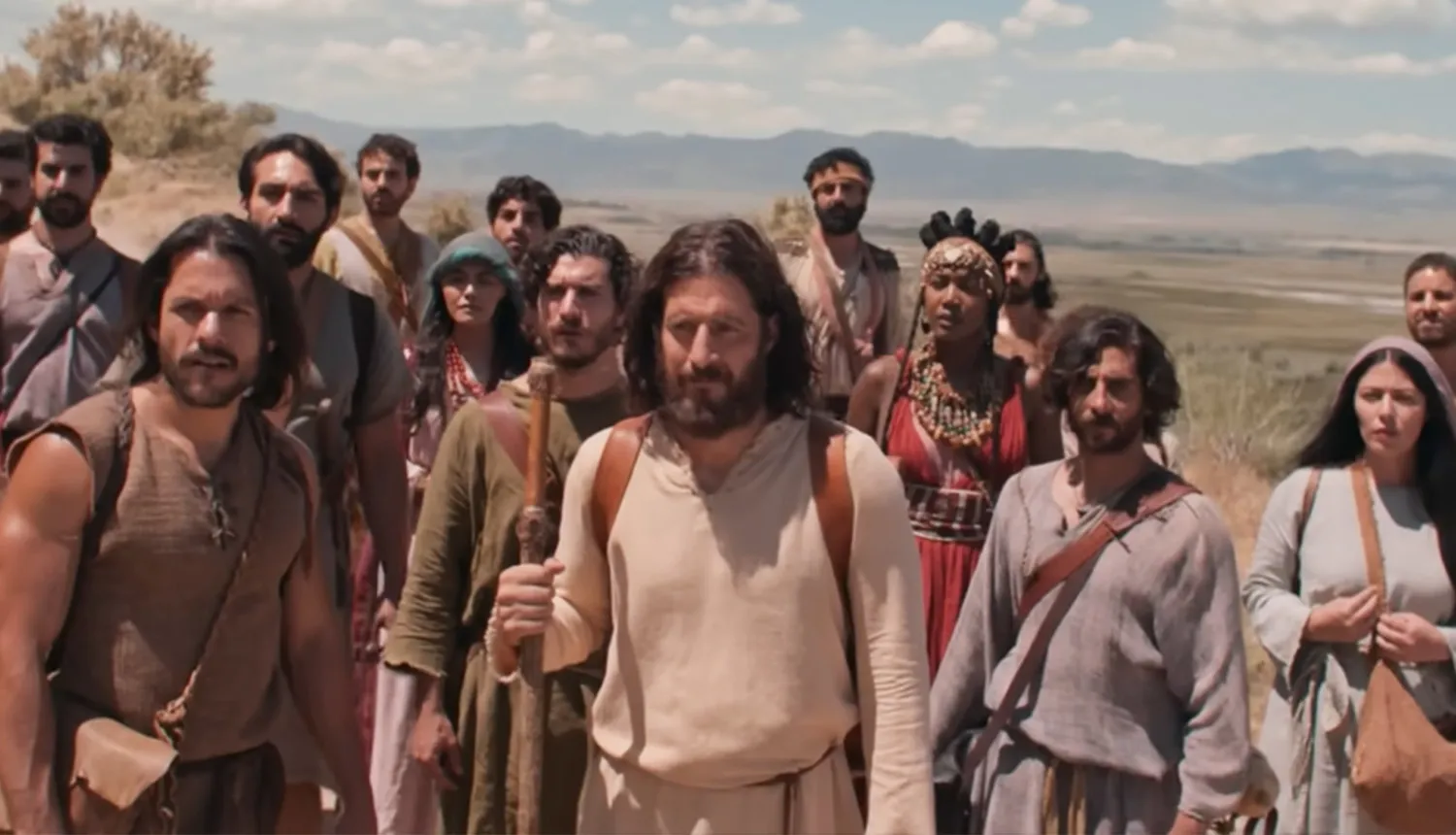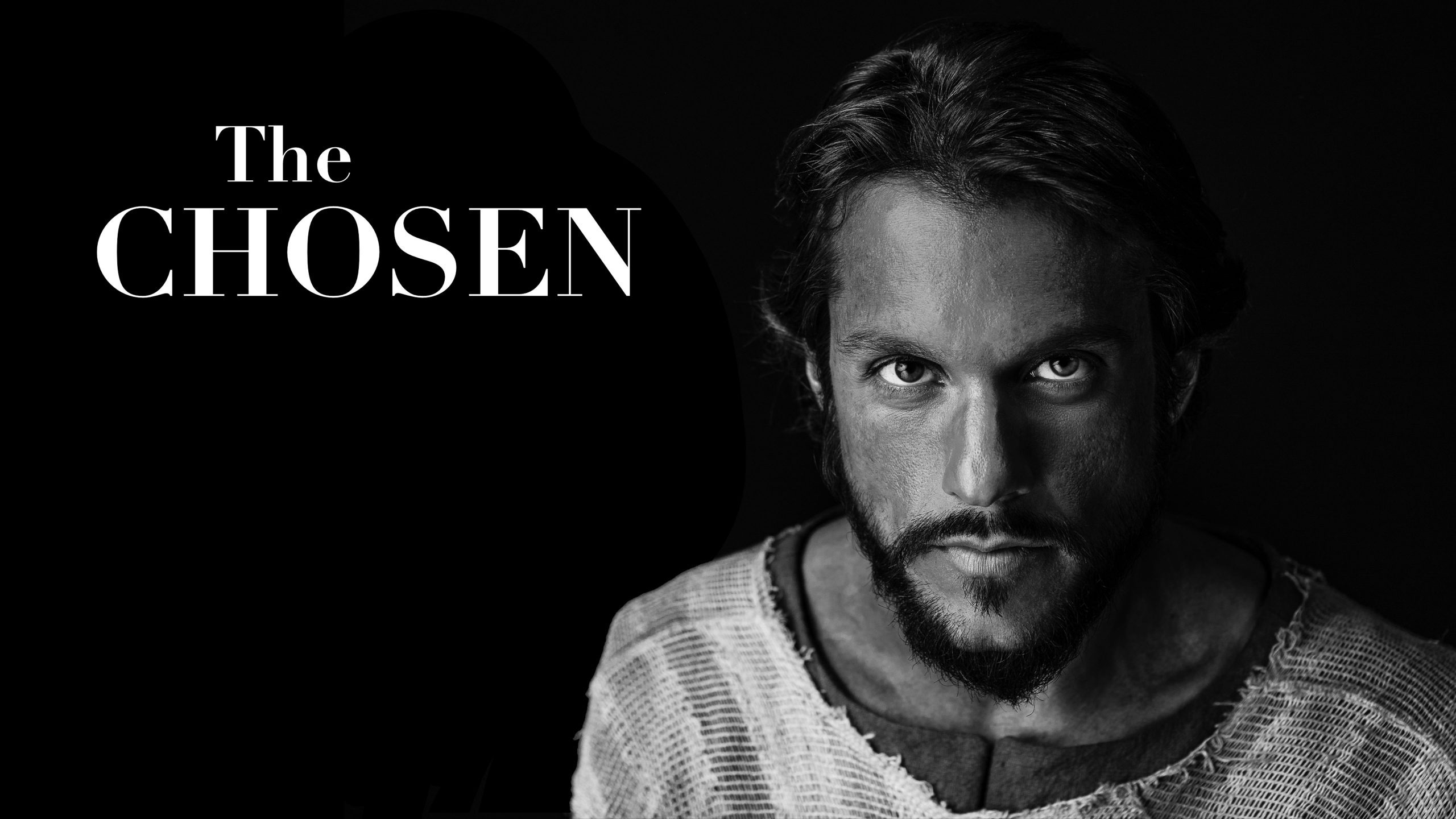While working on a well in Canaan, Jacob encounters a man who expresses disappointment because there’s no water flowing there, explaining that the river runs around the mountain instead of through it. Jacob responds by sharing how El Shaddai, the God of his fathers, watches over them.
He watches even as they continue on their journey to a land promised to his grandfather. He mentions that it can take several generations for divine promises to become reality. He also explains that their God is invisible—they don’t have a temple to gather in, no physical idols to carry along.

They worship Him at altars they build in different places. He even says God once dislocated his hip. The man becomes confused, unable to understand what Jacob means. But once they finally hit the water, Jacob says something striking—”WE did not choose HIM. He chose Us.”
Matthew’s Feast and Simon’s Struggle
Simon is still struggling to accept that Jesus called Matthew to join them. Matthew, for the first time, hosts a dinner gathering—not just with one or two people, but a sizeable group. It’s a moment of joy, showing how God gives more than what we often imagine.
The Pharisees question Jesus’ choice to dine with tax collectors and those labeled sinners, including Mary and her companions from the Red Quarter. They consider such a company unworthy. Yusef, a Pharisee, even says he wouldn’t dare mention what goes on in that place—it would defile him.
He also brings up that Matthew has never shown remorse nor presented a guilt offering at the temple. Matthew calmly reminds them that people like him aren’t allowed into the temple. Big James raises a valid point: “Even if Matthew made a sacrifice, would it change anything?”
The Pharisees respond that it’s not their desire that matters, but what God Himself demands. Then Jesus speaks. He says it’s not those who are well that need healing, but those who are sick. He reminds them about what the scroll says—they should go and study it again.
God prefers mercy over sacrifice. Jesus adds that His purpose isn’t to call the righteous but to bring sinners.
REFLECTION: Everyone has sinned. None of us is better than the other. We should start seeing people the way God sees them. I once heard someone say they couldn’t visit their brother because he wasn’t a believer. But a light stands out more in a dark room than it does in one that is already bright.
So use the light you have where it matters most. Jesus sat with sinners. Why should we feel too good to do the same? Are we more holy than Him? People, especially those who don’t believe, are watching how we live. Be mindful of your actions.
Matthew’s Conversation with Gaius
Gaius comes and tells Matthew he’s making a terrible mistake by quitting his role as a tax collector. He describes the people Matthew has joined as the worst of the worst. Matthew replies by pointing out that Gaius’ people once surrendered to the Romans.
What he is doing now is surrendering to Jesus. Then he asks Gaius for a favor.
Nicodemus and His Wife
Nicodemus’ wife tries to persuade him by appealing to his emotions. She says his mother would be proud of who he has become and doesn’t want him to waste that. She even talks about future grandchildren—how their faces would brighten up the Shabbat table.
She speaks from her heart, saying she loves their current life and wants him to return to it with her. Now, Nicodemus faces a tough decision. Should he follow Jesus or keep his family happy and hold on to everything he has worked for—his wealth, power, and social status? It would be a big price to pay.
REFLECTION: God understands the cost of faith. It is easier to remain where it’s comfortable than to step out in belief. The enemy wants us to stay in spiritual darkness. He tries to block any step we take towards Christ.
Nicodemus and Shmuel
Shmuel declares that he plans to investigate a false prophecy and asks Nicodemus if he’ll support him when he presents his findings to the Sanhedrin. He expresses his anger that Nicodemus didn’t react when Jesus claimed He could forgive sins and called Himself the Son of God.
Nicodemus replies that he won’t stand in his way. He accuses Shmuel of being more interested in politics than in God and adds that Shmuel has missed the lessons he tried to teach him. Shmuel insists he is dedicated to the Law and that God and the Law are the same to him.
Quintus’ Reaction
Quintus is furious after learning that Matthew has left to follow Jesus. He gives orders for notices to be distributed in several languages. The instructions are clear—there must be no religious meetings outside of the synagogue or temple. Jesus is now wanted for questioning. The tension is rising.
REFLECTION: Jesus presented a challenge to the system. Anyone doing God’s will is a threat to the devil. He will fight hard to pull you off course.
Eden’s Conversation with Jesus
Eden is taking care of her mother, and she’s hurting because her mother’s condition is getting worse. Jesus tells her that when He called Simon to follow Him, He knew it would demand serious sacrifice. He acknowledges that because she and Simon are one, the weight of his commitment also falls on her.
He assures her that she has a unique part to play in this journey and that He sees her, knows what she is facing, and values her. He says He can’t promise to make everything easy, but He won’t take Simon away from her without first addressing the problem—He will heal her mother.
Eden shows her gratitude to Jesus, and then she thanks Simon for obeying Jesus and for bringing Him to their home.
REFLECTION: God is aware of our pain. As His children, He knows our needs even before we ask. Our choices, our acts of obedience, and our faith create ripple effects. God notices. God understands. He will reward our efforts to honor Him.
The Moment to Leave
Matthew locks his door for the first and last time. He leaves behind his home and his dog in the care of his parents. Everyone else sets off too—leaving behind family and possessions, taking only the bare minimum. Nicodemus, however, cannot bring himself to part with everything to follow Jesus.

His wife’s words have swayed him. Instead of joining Jesus, he leaves behind a pouch of money. When Jesus asks if there’s anyone else coming, Nicodemus realizes that the question is for him. He weeps bitterly. He knows deep inside that he has missed a divine opportunity, and the pain is deep.
Which Path To Take
As they travel, the disciples argue with Jesus about the route. They advise Him to avoid Samaria, acting like He doesn’t know the risks.
Jesus responds by saying that if they are going to question everything just because it’s unfamiliar, then their journey together will be filled with frustration. He tells them not to worry—if trouble comes, Simon knows what to do. (Of course, Simon is more than ready!)
Jesus and The Woman at the Well
At the well, Jesus sends the disciples off to buy food. Soon, a woman named Photina arrives, and He asks her for a drink. Photina avoids the well when the other women come because of her reputation. She wonders why a Jewish man like Jesus isn’t ashamed to even speak to her, since she is a Samaritan and a woman.
Jesus asks her why she came during the hottest part of the day. She says no one wants to associate with her. She asks if He isn’t afraid of being defiled just by talking to her. Jesus tells her that if she had any idea who He was, she would have asked Him for a drink instead. He says He would have given her living water.
Photina questions Him—why does He need her water if He has His own? Does He think Jewish water is better than Samaritan water? Is He claiming to be better than Jacob who gave them the well? Jesus replies, “I know Jacob. Anyone who drinks from this well will still thirst again.
But if they drink the water I give, they will never be thirsty again. It will become a spring inside them.” He then describes her past in detail, mentioning the men in her life, but He doesn’t condemn her. Photina explains that she goes to the well alone to avoid being judged.
She says her ancestors worshipped on that mountain, but the Jews insist that worship must happen in the Jerusalem temple, where Samaritans are not welcome. She asks, “So where can I go to reach God?” Jesus replies that soon, people won’t need to worship on any specific mountain or in the temple.
God is Spirit, and what matters is worshiping Him with heart and mind, in truth. That’s the kind of worship God is looking for. It won’t matter anymore where people come from or what their past looks like. Photina says she’s waiting for the Messiah to come and sort out her life and the confusion around her.
Jesus tells her, “The Messiah you speak of—that’s Me. You are the first person I’m telling this to. It would be good if you believed Me.” Photina runs off with joy, shouting that she’s going to tell everyone. “This Man told me everything I’ve ever done. He must be the Christ!” she says excitedly.



